Resources
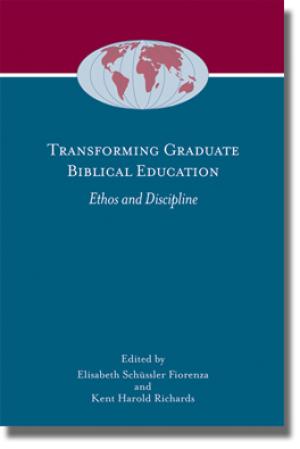
This unique collection of essays, originating in seminars held at SBL’s Annual and International Meetings, explores the current ethos and discipline of graduate biblical education from different social locations and academic contexts. It includes international voices of well-established scholars who have urged change for some time alongside younger scholars with new perspectives. The individual contributions emerge from a variegated set of experiences in graduate biblical studies and a critical analysis of those experiences. The volume is divided into four areas of investigation. The first section discusses the ethos of biblical studies and social location, and the second explores different cultural-national formations of the discipline. The third section considers the experiences and visions of graduate biblical studies, while the last section explores how to transform the discipline. All the contributions offer ways to transform graduate biblical education so that it becomes a socializing power that, in turn, can transform the present academic ethos of biblical studies. (From the Publisher)

Sitting down with a young and brilliant mathematician, I asked what he thought were his biggest problems in working toward tenure. Instead of describing difficulties with his equations or his software programs, he lamented that (a) his graduate assistant wasn’t completing his tasks on time, (b) his department chair didn’t seem to care if junior faculty obtained grants, and (c) a senior professor kept glaring at him in faculty meetings. He knew he could handle the intellectual side of being an academic—but what about the people side? ‘Why didn’t they offer Promotion and Tenure Confidential provides that course in an astute and practical book, which shows that P&T is not just about research, teaching, and service but also about human relations and political good sense. Drawing on research and extensive interviews with junior and senior faculty across many institutions, David D. Perlmutter provides clear-sighted guidance on planning and managing an academic career, from graduate school to tenure and beyond. Topics include: Making the transformation from student and protégé to teacher and mentor. Seeking out and holding onto lifelong allies. How to manage your online reputation and avoid “death by Google”. What to say and what not to say to deans and department chairs. How meeting deadlines wins points with everyone in your life. How, when, and to whom to say “no”. When and how to look for a new job when you have a job. How (and whom) to ask for letters of recommendation. What to do if you know you’re not going to get tenure. (From the Publisher)

In this provocative book Warren A. Nord argues that public schools and universities leave the vast majority of students religiously illiterate. Such education is not religiously neutral, a matter of constitutional importance; indeed, it borders on secular indoctrination when measured against the requirements of a good liberal education and the demands of critical thinking. Nord also argues that religious perspectives must be included in courses that address morality and those Big Questions that a good education cannot ignore. He outlines a variety of civic reasons for studying religion, and argues that the Establishment Clause doesn't just permit, but requires, taking religion seriously. While acknowledging the difficulty of taking religion seriously in schools and universities, Nord makes a cogent case for requiring both high school and undergraduate students to take a year long course in religious studies, and for discussing religion in any course that deals with religiously controversial material. The final chapters address how religion might best be addressed in history, literature, economics, and (perhaps most controversially) science courses. He also discusses Bible courses, and the relevance of religion to moral education and ethics courses. While his position will be taken by some as radical, he argues that he is advocating a "middle way" in our culture wars. Public schools and universities can neither promote religion nor ignore it. Does God Make a Difference? increases our understanding of a long and heated cultural conflict; it also proposes a solution to the problem that is philosophically sound and, in the long run, eminently practical. (From the Publisher)
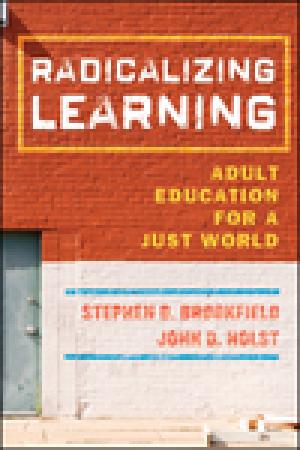
Praise for Radicalizing Learning This is a book that is so interesting that I had trouble putting it down. It is well written; there is new material; it articulates familiar concepts in such novel ways that your thought patterns get hijacked reading it. Adult learning and its processes are examined from a socialist perspective with a focus on social justice. Stephen Brookfield and John Holst have written a monumental text in the field of adult education. It is a bold, ambitious book, beautifully written and uncompromising in its social justice agenda. It is sure to become a classic in the field. This book offers new readings of the theory, politics, policy, and practice of radical adult education and learning where people's lives are understood as complex and interrelated matters. Brookfield and Holst's poetics and deeply human prose sound rebellious; the authors confront some of the main radical trends in the field of adult education including critical theory, transformative learning, and popular education. (From the Publisher)
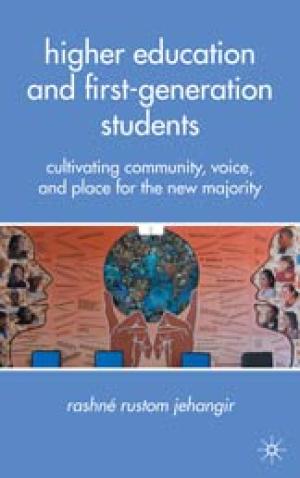
Higher Education and First-Generation Students offers readers a rich understanding of the experience of students who are first in their family to attend college. This book contends that first-generation students are isolated and marginalized on many large college campuses and considers learning communities and critical multicultural pedagogies as vehicles to cultivate community, voice, and place for this new majority of students. This book is a theoretically informed study of the lived experience of FG students and draws on their voices to demonstrate how their insights interface with what we, as educators, think we know about them. What can we learn from these students? How might their insights inform and shape the learning spaces we create for them? (From the Publisher)
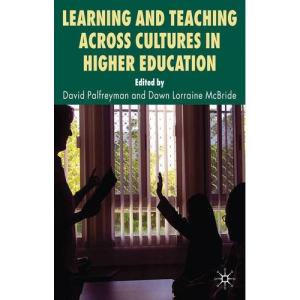
Learning and Teaching Across Cultures in Higher Education contains theoretical rationale, resources and examples to help readers understand and deal with situations involving contact between learners or educators from different cultural backgrounds, as well as giving insights into the new global context of higher education. (From the Publisher)
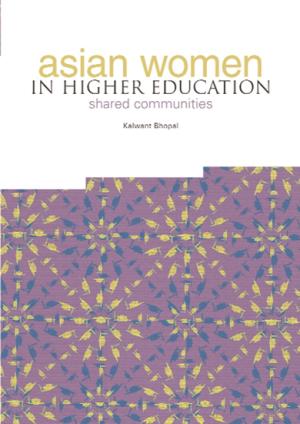
More Asian women are entering higher education in the UK than ever before, and the number looks likely to rise. Their engagement with higher education reflects widespread changes in the attitudes and cultural expectations of their various communities, as awareness grows of the greater long-term value associated with continuing in education. Today they face different challenges and share different ambitions from those of their mothers and grandmothers. This book examines the experiences of young Asian women in higher education and the difficulties they face because they have no shared background of engagement with the British university system. It considers what motivates them to succeed and describes their strategies for building support networks that help them succeed with the university setting and actively shape their lives. Taking a theoretical and empirical perspective Kalwant Bhopal examines the diversity of Asian women's experiences in higher education and provides original and valuable insights into their experience. She explores the friendship and support networks that women turn to whilst at university as well as familial support. Especially striking are her findings about the effect of higher education traditional practices such as arranged marriages and dowries, and about the empowerment generated by changing the economic status of women within British Asian society. Asian Women in Higher Education: shared communities offers a new and original perspective on the educational experiences of Asian women at university. It will be invaluable to teachers, postgraduate and undergraduate students and academics interested in the study of gender, ethnicity, identity and higher education. (From the Publisher)
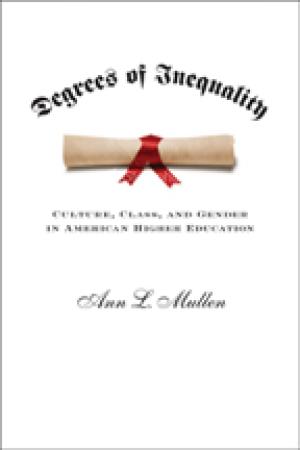
Degrees of Inequality reveals the powerful patterns of social inequality in American higher education by analyzing how the social background of students shapes nearly every facet of the college experience. Even as the most prestigious institutions claim to open their doors to students from diverse backgrounds, class disparities remain. Just two miles apart stand two institutions that represent the stark class contrast in American higher education. Yale, an elite Ivy League university, boasts accomplished alumni, including national and world leaders in business and politics. Southern Connecticut State University graduates mostly commuter students seeking credential degrees in fields with good job prospects. Ann L. Mullen interviewed students from both universities and found that their college choices and experiences were strongly linked to social background and gender. Yale students, most having generations of family members with college degrees, are encouraged to approach their college years as an opportunity for intellectual and personal enrichment. Southern students, however, perceive a college degree as a path to a better career, and many work full— or part—time jobs to help fund their education. Moving interviews with 100 students at the two institutions highlight how American higher education reinforces the same inequities it has been aiming to transcend. (From the Publisher)
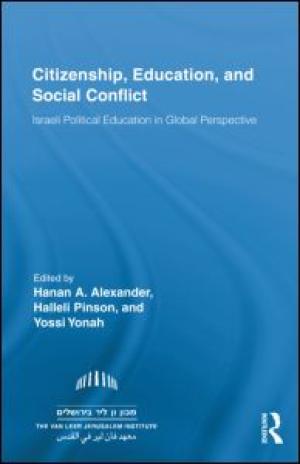
This volume provides new perspectives into the challenges of citizenship education in the age of globalization and in the context of multicultural and conflict-ridden societies. It calls on us to rethink the accepted liberal and national discourses that have long dominated the conceptualization and practice of citizenship and citizenship education in light of social conflict, globalization, terrorism, and the spread of an extreme form of capitalism. The contributors of the volume identify the main challenges to the role of citizenship education in the context of globalization, conflicts and the changes to the institution of citizenship they entail and critically examine the ways in which schools and education systems currently address – and may be able to improve – the role of citizenship education in conflict-ridden and multicultural contexts. (From the Publisher)
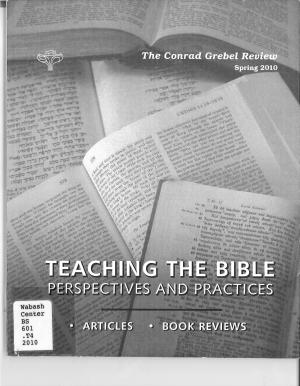
Articles and book reviews